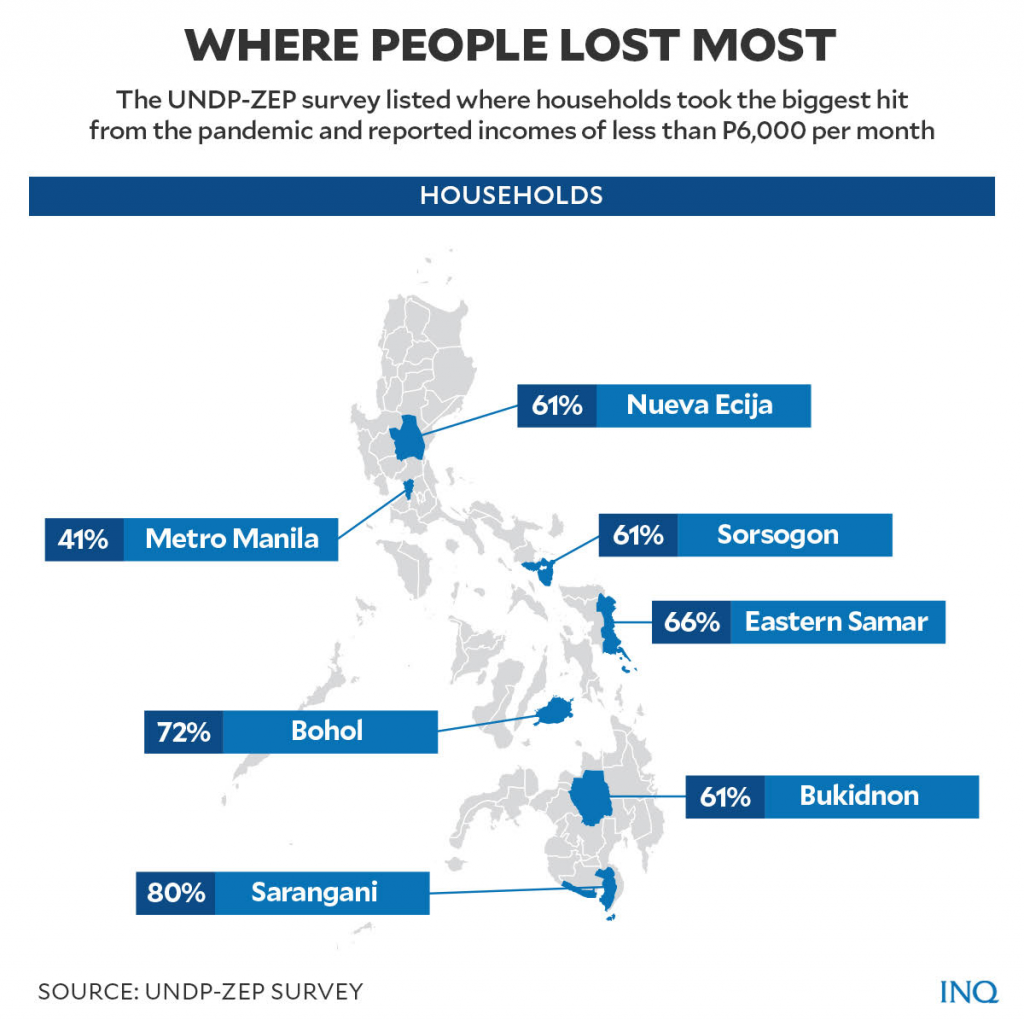NOTE THIS STORY WAS FIRST PUBLISHED IN THE BOHOL CHRONICLE’S SUNDAY PRINT EDITION.
In a report on a survey done this year (and published yesterday) in the Daily Inquirer, the UNDP ( United Nations Development Program) and (ZEP) Zero Poverty (2030) confirmed that Bohol was one of the worst affected provinces economically by the pandemic.
The survey took representative sample-provinces in all regions: Nueva Ecija (Luzon), Sorsogon (Bicol), Bohol (Eastern Visayas), Eastern Samar (Western Visayas), Sarangani and Bukidnon (Mindanao) and the NCR (National Capital Region). Some 18,000 households were covered by the survey in March 2021,according to the UNDP.
BOHOL: ONE OF THE WORST AFFECTED
The report said the “effects on the income and livelihood were felt nationwide”. It said 90% of the households have monthly incomes of less than P10,000; 63% of that below P6,000 a month.”
Bohol was second-worst in terms of the number of households that saw their income decrease due to the pandemic: Sarangani (80%), Bohol (75%), Sorsogon (73%), Eastern Samar (76%), Bukidnon (73%) and Metro Manila (69%).
In the meantime, Bohol has the third-highest number of families whose income had worsened: Sarangani (74%), Nueva Ecija (69%) and Bohol (65%).
Bohol also ranked No. 2 of those households with income below P6,000/month: Sarangani, (80%), Bohol (72%), Eastern Samar (66%), Sorsogon (61%) Bukidnon (61%), Nueva Ecija (61%) and Metro Manila (41%).
TRANSLATED INTO POPULATION
Translating the percentages measured versus the latest population count of 1.4 million Boholanos, this means: 1.050 million Boholanos saw their family income deteriorate during the pandemic; 910,000 Boholanos belong to families who were off economically and 1.008 million Boholanos belong to families who had an income of less than P6,000 a month.
Among the reasons for their income plunge in the survey were: (47%) lost work and business; (41%) experienced hunger; (36%) had difficulty accessing health services and (10%) had to stop their children from schooling even those online.
It is probably one of the worst economic predicaments since after World War II.
Among the reasons advanced by those surveyed about the reasons for their income decline were: (a) restrictions in movement (b) lower revenues despite maintaining a source of income and (c) inability to find work or livelihood.
These grim poverty statistics in Bohol become more woeful in the face of reports and cases filed by concerned citizens and businessmen against public officials for official theft and graft in Bohol.

